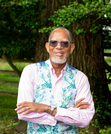Having just read The Advocate article, "How The Tenth Challenges the Image of Black Queer Men," I thought I would repost the post I did for Queer Romance Month in October.
I read. A lot. And I collect books. I have hundreds. Many are classics—Fitzgerald, Wells, Dickens, the Brontés. Virginia Wolfe. But many more are contemporary gay fiction ranging from newer, lesser known writers to the literary lions of gay literature: Felice Picano, Mark Merlis, E.M. Forster, Baldwin, Burroughs (William, not Augusten), Alan Hollinghurst, William J. Mann, David Leavitt.
The first queer novel I read was Patricia Nell Warren’s
The Front Runner. I remember finding it at the book store at Penn freshman year. My roommates, who were on the track team, were at an away meet that weekend. I read the entire book before they returned, barely stopping to sleep and eat. I read
The Fancy Dancer, too. But it was
The Front Runner that started me on the pursuit of queer fiction. From then on I read queer romance and queer fiction almost exclusively.
I was hungry for stories about people like me. In retrospect some of my choices make me blush in embarrassment—Gordon Merrick comes to mind—but back then queer books weren’t so easy to find. And I needed queer stories. Even if the stories weren’t really about me. They seldom had any people of color or anyone who wasn’t spectacularly good looking or outrageously “hung.” Reading, I would superimpose myself, my experiences, over each of those author’s texts—much like I’d done when the only GI Joe dolls available were white.
In discovering queer fiction, I had discovered I was not alone; I could finally visualize a life lived with a beloved man at my side. I was truly grateful to the gay authors who had the courage to tell queer stories. But I was increasingly frustrated with the white homo-normative narrative. Where my stories, the stories of our brothers and sisters who were other, who were outside, should have been, there was only silence.
But those queer stories also needed to be told. They were a part of our larger queer stories. We need stories that reflect the spectrum of our lives and loves. We need stories of queer men who find love and romance even if they aren't handsome or hung or white. That said I don’t believe there are black stories and white stories, there are just stories but I do believe that no one in the queer community should be marginalized or invisible—in life or in literature.
There are no black stories. There are no white stories. There are just stories. Queer stories matter because they allow us to share our lives, to show the world we are varied, we are different but not so different, not really. The value is in allowing us—each of us—to see queer selves, our differences, celebrated and reflected.
Read The Advocate article, "How The Tenth Challenges the Image of Black Queer Men,"
here.
Read my original post, and the resulting comments,
here.
Learn more about my books here:
Larry Benjamin.
Follow me on
Twitter and
Facebook .
 newest »
newest »
 newest »
newest »
 ♣ Irish Smurfétté ♣ wrote: "From the article: "The Tenth, which takes its name from a W.E.B. DuBois essay titled “The Talented Tenth,” contains counternarratives on black gay and bisexual men’s lives, but it is most valuable ..."
♣ Irish Smurfétté ♣ wrote: "From the article: "The Tenth, which takes its name from a W.E.B. DuBois essay titled “The Talented Tenth,” contains counternarratives on black gay and bisexual men’s lives, but it is most valuable ..."




It's amazing how much of a challenge this seems to be, to create spaces for everyone to express how they feel about themselves, how they define themselves, and have that be respected and included, not wiped away or treated as "other" or insignificant. It shouldn't be so difficult. I realize, as a society, we're often working against old, deeply entrenched ideas, but still. It's worth the effort. <<<< huge understatement lol
Thanks for sharing this, Larry.